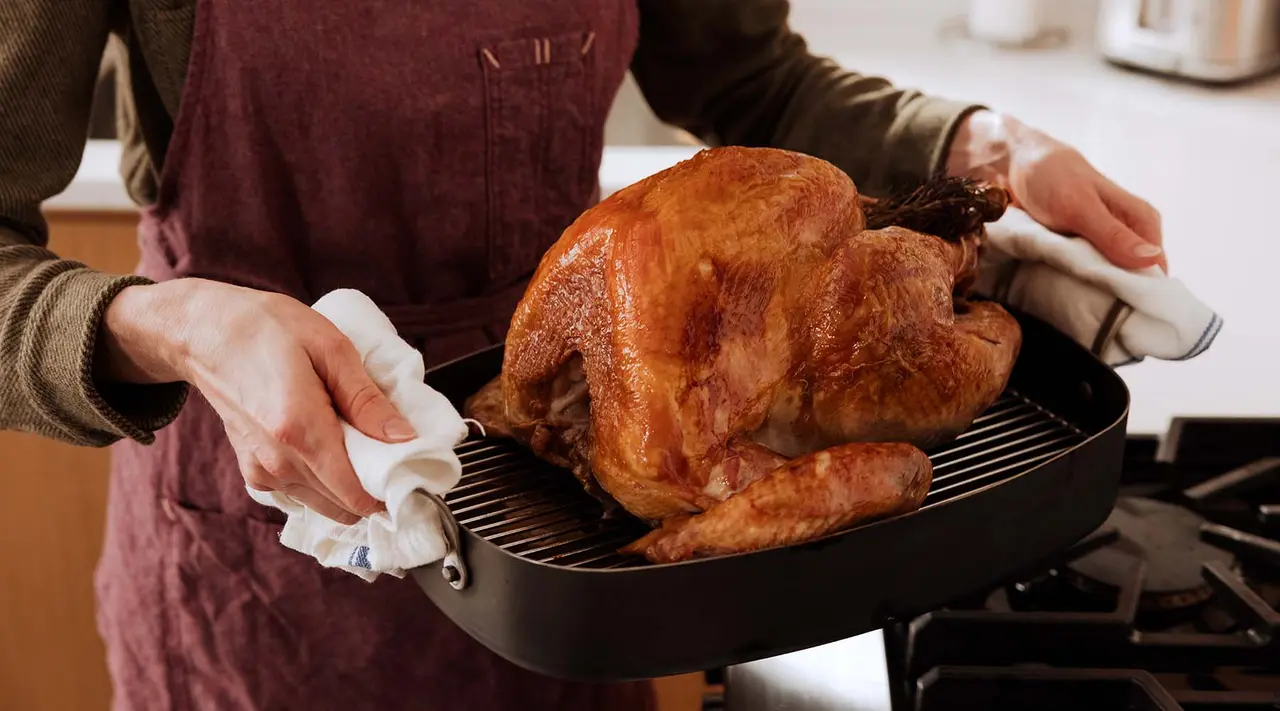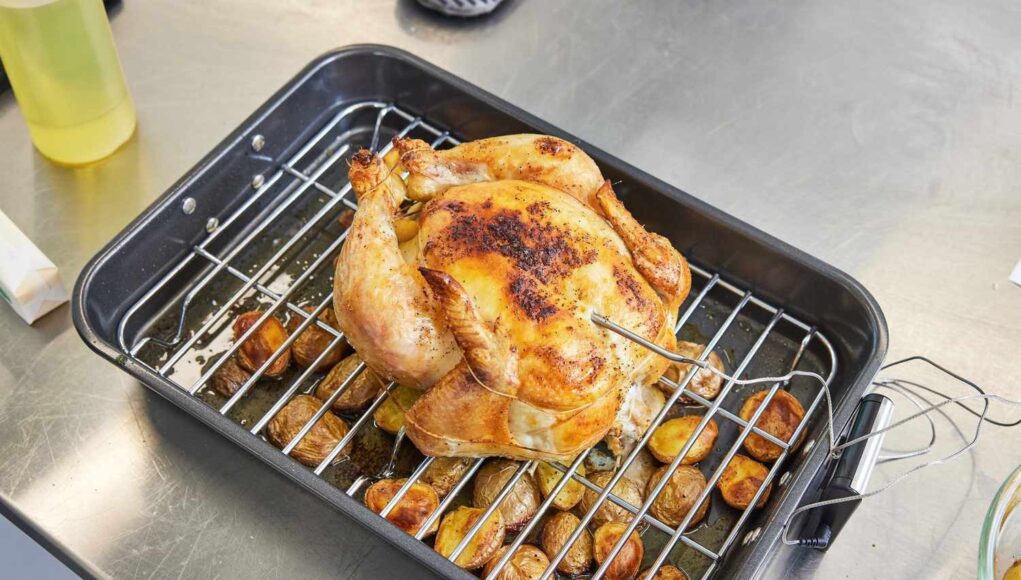Preparing a turkey, especially for significant occasions like Thanksgiving or Christmas, can be a daunting task. One common question that arises is: do you put broth in the pan when roasting a turkey? This article aims to offer comprehensive guidance on this matter, ensuring your turkey turns out succulent and flavorful.

Understanding the Role of Broth in Turkey Roasting
Broth, which is essentially a flavor-packed liquid, plays an integral role in roasting turkey. Adding broth to the roasting pan can significantly enhance the meats flavor while also keeping it moist.
Why Moisture Matters
When roasting a turkey, maintaining moisture is key. The last thing you want is a dry, chewy turkey that is unappealing to your guests. Adding broth helps in achieving that desirable juiciness.
Enhanced Flavor Profile
The broth infuses the turkey with rich, savory flavors. Whether you use chicken or turkey broth, this step can make a noticeable difference in the final dish.

Choosing the Right Broth
Selecting the right broth is crucial. You might wonder: should you use chicken broth, turkey broth, or even vegetable broth? Each option offers unique benefits and flavors.
Chicken Broth
Chicken broth is readily available and adds a mild yet flavorful touch to your turkey. Its subtle taste complements the turkey without overpowering it.
Turkey Broth
For those who prefer a more consistent flavor, turkey broth is ideal. It intensifies the turkeys natural taste and creates a harmonious blend.
Vegetable Broth
If youre seeking a lighter, vegetarian option, vegetable broth works well. It offers a different flavor dimension without adding any meat-based components.

How Much Broth to Use
Quantifying the right amount of broth to add can be tricky. Generally, one to two cups of broth should suffice, depending on the size of your turkey and the depth of your roasting pan.
Small to Medium Turkeys
For turkeys weighing less than 15 pounds, one cup of broth should be enough to keep it moist and flavorful.
Larger Turkeys
Turkeys over 15 pounds may require up to two cups of broth to ensure even moisture distribution and to prevent dryness.
Expert Tips for Using Broth in Turkey Roasting
A few expert tips can help you master the art of roasting turkey with broth:
Heat the Broth
Warm the broth before adding it to the pan. This helps in maintaining a consistent cooking temperature and ensures the turkey cooks evenly.
Frequent Basting
Baste the turkey periodically with the broth. This enhances the flavor and keeps the meat juicy throughout the roasting process.
Avoid Overcrowding
Ensure the turkey is not overcrowded in the pan. Adequate space around the bird allows for even heat circulation and proper cooking.
Common Mistakes to Avoid
Avoid these pitfalls for a flawless turkey roasting experience:
Using Too Much Broth
Excessive broth can make the turkey soggy and prevent it from developing a crispy, golden-brown skin.
Skipping the Basting
Not basting the turkey can lead to uneven moisture levels and dry patches in the meat.
Not Seasoning the Broth
Season your broth with herbs and spices to add an extra layer of flavor to your turkey.
FAQ Section
Do you have to use broth when roasting a turkey?
Using broth is not mandatory, but it greatly enhances the flavor and moisture content of the turkey.
Can you use water instead of broth for roasting turkey?
Yes, you can use water, but it will not provide the same depth of flavor as broth.
Should you cover the turkey when roasting with broth?
Covering the turkey can help retain moisture, but uncover it for the last hour of roasting to achieve a crispy skin.
Conclusion
Adding broth to your roasting pan is a game-changer when it comes to cooking turkey. Not only does it keep the meat moist, but it also infuses it with rich flavors, making your holiday meal truly memorable. Remember to choose the right broth, use the correct amount, and follow the expert tips provided for a terrific roasted turkey. For more delicious turkey preparation ideas, visit this guide.
As an Amazon Associate, I earn from qualifying purchases.









